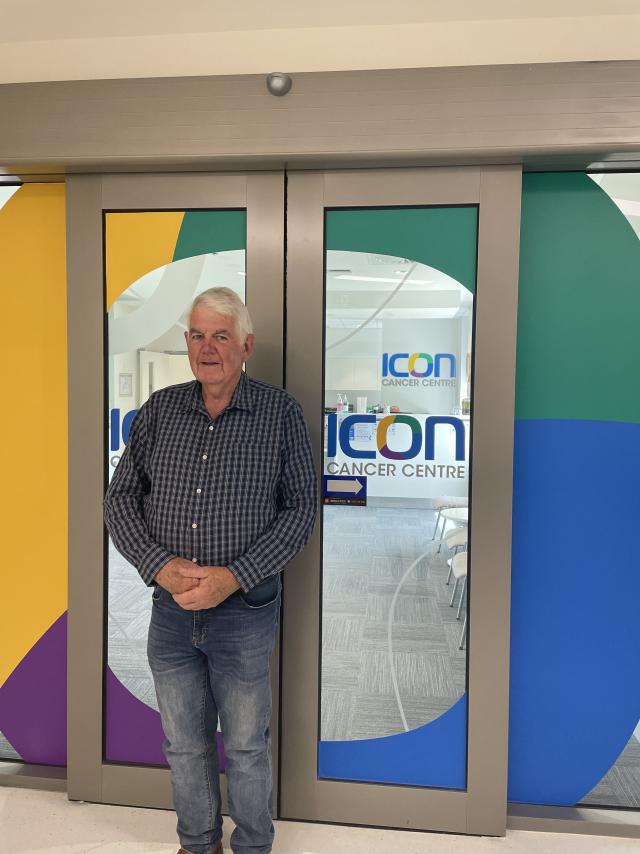A local treatment centre is making it easier for patients in rural areas to access treatment and help close the cancer care gap.
Geelong show dog breeder Greg Browne, 74, said he was currently getting treated for prostate cancer at the Icon facility in Waurn Ponds, which is his second cancer after having Melanoma in 2015.
He said the centre was closer to home, provided more accessible treatment, and greatly benefited Western Victoria.
“Just the absolute ease of access is amazing,” Mr Browne said.
“It was fortuitous that the Icon Centre was available a 10-minute drive from home, which is better access than I would have had in Melbourne.
“There’re stresses involved in travelling. If I were in the city, I’d be looking at a minimum of an hour’s travel. If you still want to continue to work, it makes it impractical to do so.
“The treatment regime here is 39 consecutive days of treatment. The treatments are relatively short, about 10 minutes, and that’s excluding weekends and public holidays.
“It’s a fair commitment for a period of time.“
Mr Browne said the Icon Centre provided an “extremely personalised service” and helped relieve some of the fear around receiving the cancer treatments.
“It’s a smaller, more personalised experience because it’s not like going into a major hospital in the city,” he said.
“I think in some ways it’s less confronting. It’s got its own unit, the same consistent staff every day that greet you by name and all that makes it a more pleasant experience.”
Icon Group chief executive Mark Middleton said there were still significant gaps in the cancer experience despite Australia having one of the world’s best healthcare systems.
“We’re committed to providing patients greater access to integrated cancer care and working with our partners at local and national levels to connect patients to all aspects of their care,” he said.
“This year we’re continuing to expand our national network of cancer centres, currently at 36 centres, working alongside like-minded patient advocacy groups to improve the patient experience wherever people live.”
Mr Middleton said focusing on deeper relationships with patient advocacy groups would help connect patients with needed services and provide more comprehensive cancer care with the latest technology and techniques to close the care gap.
“We’ve built a genuinely integrated network of cancer centres and expert clinical teams to eliminate the barriers faced by more remote communities.“
“Our way of delivering care addresses workforce shortages and improves patients’ ability to access care with greater ease.”








